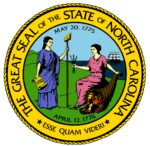
Legislative proposals are always in flux. However, since I previously reported on HB 542 and other bills impacting community associations, I wanted to share that HB 542 (“HOA Revisions/Foreclosure Trustee Auctions”) was passed by the Senate Judiciary committee yesterday and will likely be voted upon by the entire Senate before long. Various stakeholders and legislators are working on the proposals.
The bill as currently written would drastically change North Carolina community association law. The following provisions would apply to all HOAs and condos, whenever created, and whether the association is under the control of the developer or the homeowners:
- Non-judicial foreclosure for unpaid association assessments would be eliminated. All collections of unpaid assessments would be through “judicial” foreclosure, meaning collection cases for regular dues will no longer be through the Clerk of Court, but will be through a full blown District or Superior Court lawsuit. In addition, this judicial foreclosure could only be filed if the assessments owed exceed $2,500 or 12 months of assessments, whichever is less; the assessment remains unpaid for at least ninety days; and the executive board votes to commence judicial foreclosure against the specific property. There would also be additional notice requirements to owners who fail to pay assessments, including possibly by email and telephone.
- Any debt consisting solely of fines for violations would require the association “file a claim of lien within 30 days after the date the fine was imposed.”
- Any fines collected from owners in violation would have to be remitted to the Civil Penalty and Forfeiture Fund and not to the association.
- Attorney’s fees associated with fines recoverable from the homeowner for a violation will be limited to 15% of the amount recovered. This will leave the association to pay any remaining attorney’s fees owed to the association’s law firm, even though a court found the owner liable for the violation.
- Community managers could not be compensated in whole or in part by fines collected for the association.
- A contract between an association and a community manager could not exceed one year and could not have automatic renewal provisions.
- Associations would be unable to enforce any restrictions related to public streets. This almost certainly means that associations will not be able to prevent parking on public streets even when the declaration clearly prohibits or restricts street parking.
- No fine could be imposed for “tutoring, educational lessons, academic lessons, music lessons, or swimming lessons” provided on an owner’s lot/unit “to a group of no more than five people at any one time, regardless of whether compensation is received for such lessons.”
- An owner can only be charged the costs of copies for any association records requested. An owner cannot be made to reimburse the association for the administrative costs the association may incur, no matter how voluminous and extensive the owner’s request may be.
The current Proposed Committee Substitute can be found in full at https://www.ncleg.gov/Sessions/2023/Bills/House/PDF/H542v3.pdf
Our firm is currently evaluating the impact some of these proposals would have on our associations and their owners. If you have have concerns about the proposals and have a relationship with your Senator or House member, now would be the time to reach out, as time is limited.

